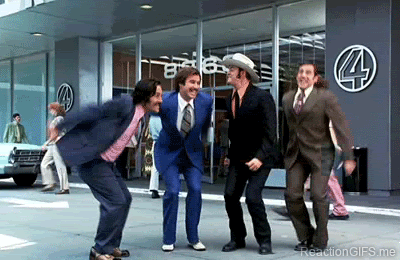So this week I have been working on the type of questions I want to ask in my questionnaire. At first I thought there would be only a few questions but with all the multiple choice options and pictures, it looks kind of lengthy (5 pages...). But hopefully with some finishing touches I can make it short and quick, and allow me to get all the information that I need.
Additionally, on Thursday, I visited Arizona's capitol hill (in downtown Phoenix where Arizona's legislature is located) with CAIR (my internship). This is the first time that CAIR has set up meetings with Arizonian legislatures to talk about certain bills and to encourage Muslim community members to participate in their government.
As with any event, their are always last minute cancellations, so we had a small crowd (I'd say about 15 people), but nonetheless the outcome was great!
There were two specific bills that we wanted to discuss: HB 2401/SB1125 (School Desegregation Funding) and HB 2617 (Israel Boycott and Divestment).
First, let's talk about HB 2617. Essentially, this bill wants to limit the BDS (Boycott, Divestment and Sanctions) movement that many individuals, college groups, companies and organizations have started. The BDS movement protests Israel's unlawful settlements in Palestine as well as Israeli companies that are complicit with human rights abuse. Additionally, if there is any company/organization that supports BDS, they will not be able to do business with the government and pension systems will be divested from these companies/organizations.
This bill infringes upon the people's first amendment right. We have the right to boycott certain goods to show our support, in this case lack of support, for certain ideas/actions/events. So why is Arizona trying to pass the bill? Boycotts have been a major part of American history (remember the Boston Tea Party and the Montgomery Bus Boycott) and this right is what makes America so great.
So it was important to us to convey the importance of this right to our legislators. As it turns out, I got to meet with the legislator of my district, Martin Quezada. He was very receptive and he told us that he was the only one to vote against the bill when it was under discussion at one of the committee meetings.
What surprised me regarding this bill is the fact that Republicans are usually against any type of law that interferes with business...so why do they want to regulate the boycotts? Won't it be better for this to play out by itself? Companies should have the choice to BDS rather than worry about the government trying to stop them.
HB 2401/SB1125 is a bit more complicated. So, after the Supreme Court Case Brown V Board of Education, all schools had been ordered to be desegregated. In order to do this and provide certain programs for their students, school districts were given the ability to impose property taxes.
So you may be thinking "why is this important? Aren't the schools already desegregated?"
Well, yes and no. Though the schools are not segregated as they were in the past, especially in Arizona there are many schools that only have minority students at low socio-economic standing. So taking away the schools' main method to provide a better education for their students will be stripped.
Education in Arizona is already at a low, by taking away this right will only make things worse. And the fact that this tax right was granted to the school districts from a federal level, it is highly likely that there will be lawsuits in place against the state and federal government which will be ultimately funded by tax-payer dollars.
These were the only two bills we discussed but it was important to show the state that the Muslim community was involved with aspects of daily life. Muslims are as much part of the community as everyone else; they are parents whose children go to school and business men and women.
Many people are only aware of elections and issues at the federal level and don't even know what bills are being passed right under their noses. Regardless of ones religion, participating in government is the way to ensure that you are aware of your surroundings and being represented.
This was an excellent experience to see not only how the government works but to also show others that Muslims are part of the community and that we care about "normal" issues like school funding and the first amendment right.
